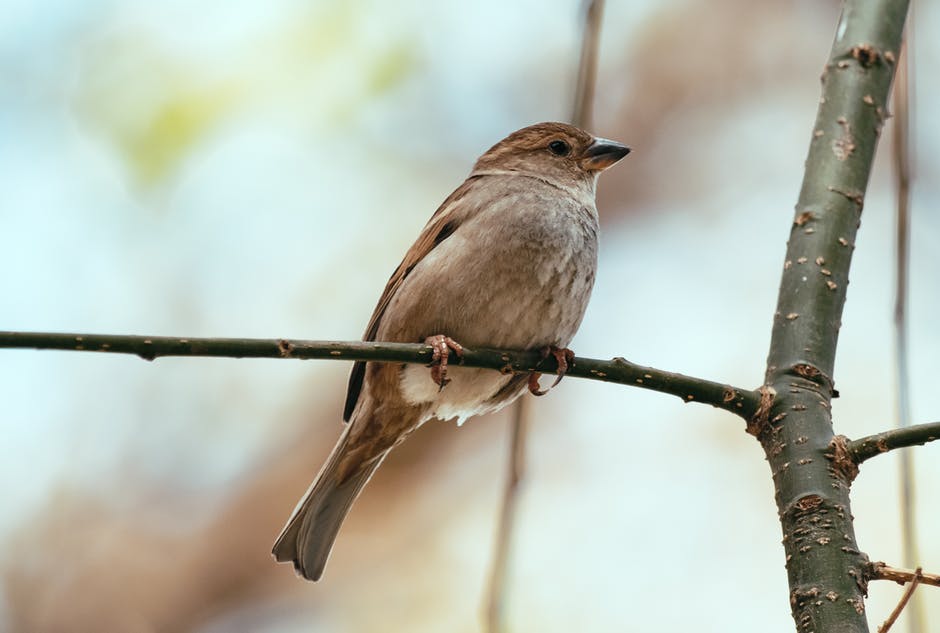
‘Music is what feelings sound like’
Sound can mean many things. It perceives depth and measures the shallows. It imparts security and warmth. It soothes and it torments, it laughs and cries and it lives and dies. If the universe itself was born in sound, there is hardly room to escape it, because it pervades every being either consciously or subconsciously. Some familiar sounds are so much a part of life that they tend to be taken largely for granted until silenced, at which point, they turn haunting by their very absence.
On the morning of Sunday, the sixth of February, India was literally stunned into silence because the much- loved sound of a much- loved voice, which was part of the collective humming of the nation had been muted forever. It had everything to do with a diminutive figure all of five feet and one inch, emblazoned in the collective conscience as normally clad in a white saree with a large colorful border, an endearingly chubby face and eyes which not only sparkled with intelligence, but also a wry humor. This lark in human form held sway over a billion people. A voice which literally meant the sound of music to four generations of Indians.
When the right tunes meet the right lyrics and emerge from the right throat, magic is created. We were lucky to hear this happen. Lucky enough to be born in an era when recording was possible. The way in which the recordings were conveyed to the masses of course varied with the times, starting with the gramophone followed by the radio, portable transistor, cassette player, music system, CD player, I-pods and topped by Spotify in recent times. But the silken voice remained the same, everchanging yet never changing, momentary but eternal. It had the power to make to make some weep with joy, while others swayed to the same tune, some quietly hummed, others warbled and yet others shouted from the roof-tops.
While a good bit of credit can be given to the superb lyrics and innovative music which was the norm in the heyday of this voice, it had that inherent quality which can only be a blessing: the ability to become what the listener wanted to hear. For many, the memories of the songs remain deeply personal. You could be a trained vocalist or a bathroom singer, unable to carry a tune beyond ‘Twinkle Twinkle Little Star’, when you crooned along with the voice, for just a few glorious moments, you shed the rest of your persona, the lyrics and the music seemed to be written for you alone. You became what your heart said you were…a mother, a bride, a lover, a devotee, a patriot.
There were those songs which identified themselves because of the voice and yet others which remained obscure, like the unknown vein of diamonds in a secret mine, waiting for the right person to come along, find and appreciate them. If ‘Aayega Aanewala’ was a haunting song from a film about the haunted, ‘Bol ri Kathputli Dori’ was an easy way to talk about the philosophy of the bonds of human life. ‘Bachpan ke Din Bhula na dena’ carried one back to the largely innocent world of childhood and ‘Duniya Mein Hum Aaye Hain to Jeena hi Padega’ talked of the loss of this very innocence and the hardships of the underprivileged. There were moments never to be forgotten in ‘Do Ghadi Woh jo Paas aa Baithe’ and forgotten moments in ‘Mohe bhool Gaye Sawariya’.
On and on the voice flowed, much in the manner of Tennyson’s poem, ‘The Brook’, for men came and went, but the voice went on forever. It knew no barrier of caste and creed, nor of religion and race. It just did what it was meant to do and made the world a better place. It embraced several languages, even composed its own tunes under a pseudonym, ‘The Cloud of Happiness’ and lived up to the name. The message of the saints from Tukaram to Dnyaneshwar and Tulsidas to Meera sounded that much truer when conveyed by it. From ‘Sundar te Dhyana’ to ‘Khel Mandiyela Valavanti’ and ‘Shree Ramchandra Krupalu bhaja Mana’ to ‘Mhara re Giridhar Gopal’ it not only touched divinity, but also made avid listeners understand divinity that much better.

While it gained fame through its renditions mainly in Hindi, about forty other languages were rendered with the same care. Marathi perhaps ran a close second to Hindi, it being the mother tongue of this golden voice. Ranging from ‘Ghanashayam Sundara’, the eternal morning song which made at least two generations of the Marathi Manoos leave his comfort zone in search of expanding horizons, to ‘Airanichya Deva Tula’ that anthem of laborers everywhere to ‘Latpat Latpat Tuzha Chalna’ to a rather bold and feminist song ‘Mi Raat Takali, mi Kaat Takali”, it further embellished an already rich language. It drove in certain home truths in the rather philosophical rendition ‘Jan Pal Bhar Mhantil Haaya Haaya’ and spoke of a deeply personal story in ‘Kalpavriksha Kanye Sathi’, which made it tremble with its own underlying pathos. It captured angst, castigation and ultimately resignation perfectly in ‘Maj Sang Lakshmana’ in G.D.Madgulkar and Sudhir Phadke’s timeless classic Geet Ramayan.
The secret to its timelessness lay in its adaptability, diction and emotive capability. For every girl who frolicked to ‘Ja Ja Ja Mere Bachpan’, there existed a woman with a crushed dream shedding quiet tears to ‘Yun Hasaraton ke Daag’. For every woman who found the night a reflection of a thousand stars and romance in ‘Yeh Raat Bheegi Bheegi’, someone somewhere lamented to ‘Tumhe Yaad Karte Karte Jayegi Rain Saari’ or ‘Raina beeti Jaaye’. And so ‘Jo Vaada Kiya Woh Nibhana Padega’ melted into ‘Piya Bina Piya Bina’. Dawn turned to dusk with ‘Bhor Bhaye Panghat Pe’ and ‘Jaago Mohan Pyaare’ to ‘Mora Gora Ang Laile’ and ‘Woh Chand Khila’.
The moods of the voice were many. Playful, as in ‘Dhundo Dhundo re Saajna’ and ‘Mila hai Kisi ka Jhumka’, hopeful in ‘Do Sitaron ka Zameen par Hai Milan’ and ‘Aaj Phir Jeene Ki Tamanna’, plaintive in ‘Tumhi Mere Mandir’ and ‘Rula ke Gaya Sapna Mera’, entreating in ‘Tadap ye Din Raat ki’, full of joy in ‘Aaja Sanam Madhur Chandni me Hum’ and ‘Kuch Kehta Hai ye Sawan’ nostalgic in ‘Who Bhooli Dastaan lo Phir Yaad aa Gayi’ and laced with subtle sorrow in ‘Rahte the Kabhi Jinke Dil Mein’ and ‘Yaara Seeli Seeli’.
There were songs for every season, feeling, memory and age. The monsoon would not be the same without ‘O Sajna Barkha Bahar Aayi’ and ‘Sawan ka Mahina Pawan Kare Sor’ The actor on screen could have been sixteen or sixty, the voice adapted itself to them with an almost other -worldly ease. And so, we found it difficult to believe that ‘Maye ni Maye’, ‘Arre re Arre Yeh Kya Hua’ and Mehndi Laage ke Rakhna’ were rendered when the voice was more than twice the age of the actors on screen. The body shrunk and grew frailer, outings and live performances were rarer, but the play back as evidenced by these songs retained its youth and playfulness. It seemed as if the rest of the being had been consumed by the voice.

This voice remained true to its values from refusing to perform to cabaret numbers, ‘Aaaaaa Jane Jan’ being a notable exception, to becoming THE voice of patriotism in the performance of the haunting ‘Aye Mere Watan Ke Logon’, as well as the rousing ‘Jayostute Jayostute’ and ‘Ne Majh si Ne’ by the revolutionary freedom fighter and poet, V.D Savarkar.
The voice wanted to convey everything and nothing. Did it really have an idea about how much of a household name it had become and what power it imbibed? These questions will probably remain just questions. But people will pay heed to its entreaty, ‘Chupa lo Yun Dil Me Pyaar Mera ke Jaise Mandir me Lau Diye Ki’. Music will never be the same as India bids adieu to its most famous, revered and ethereal voice. To paraphrase Dr. Anand Ranganathan’s tweet, “She was not a queen or a president, yet she ruled the hearts and minds of a billion people. Don’t ever ask again what real power is”.
With Lata Mangeshkar’s golden voice silenced forever, it can be said,
“Tere bina zindagi bhi lekin zindagi toh nahi, zindagi nahi…” because as she herself said in one of her songs,
“Kuch Dil ne Kaha, Kuch bhi Nahi,
Aisi bhi Batein Hoti Hai,
Aisi bhi Batein Hoti Hai”

10 replies on “Aisi Bhi Batein Hoti Hai”
Super tribute to the nightingale of india
Really enjoyed this…so many wonderful songs….nice tribute!
Superb Sumedha. Perfectly said
but the voice went on forever. It knew no barrier of caste and creed, nor of religion and race.
Truly said…”Tere bina zindagi bhi lekin zindagi toh nahi”. Thanks for writing about eternal songs of Didi Lataji.
Your words are a touching tribute
Lovely tribute ….superb
Superb 👌perfectly described, literally had tears by the end kudos Sumedha👏👏
Superb….The coverage and the choice of songs is really amazing.
Well written…. Great..
Sumedha, it is written beautifully. I am out of words…kudos to you.
Very nice indeed. No wonder she was called ma Saraswati as the sur , Taal and emotions were always perfect with her singing. No one would vẻ be able to replace.